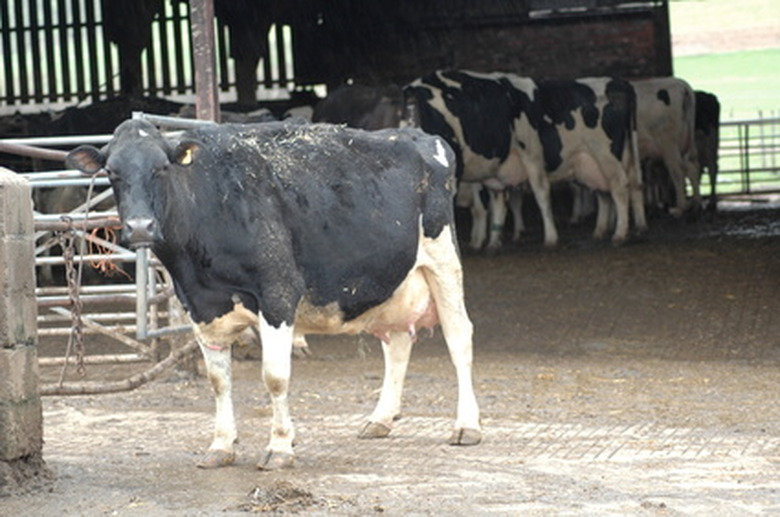Diseases Found In Cow Manure
Many people fertilize their gardens with composted cow manure but don't realize the hidden dangers. Cow manure may harbor diseases such as e. coli O157, listeriosis, salmonellosis, cryptosporidiosis and mad cow disease. These diseases are fecal to oral in transmission and may be passed to humans if vegetables from the garden are not properly washed. Protect your family and yourself by frequent hand washing and proper food preparation to avoid infection.
E coli O157 (Escherichia coli)
E. coli O157 bacteria are found in the manure of cattle in just one percent of the herd. Recently weaned calves and heifers are most susceptible to carrying the disease, reports John H. Kirk, DVM, MPVM of the School of Veterinary Medicine at the University of California Davis. E. coli O157 does not survive long in the field, but if refrigerated on contaminated vegetables it can survive for many days.
- Many people fertilize their gardens with composted cow manure but don't realize the hidden dangers.
- These diseases are fecal to oral in transmission and may be passed to humans if vegetables from the garden are not properly washed.
Listeriosis
Listeriosis, a disease caused by the bacterium listeria monocytogenes, usually infects people with weakened or compromised immune systems. Listeria is shed in feces by cattle during the winter months. Humans and livestock may become carriers, but the normal source of infection for humans is from ingesting listeria that has come in contact with fresh vegetables.
Symptoms of listeriosis are muscle aches, fever and sometimes diarrhea and nausea, according to the Center for Disease Control and Prevention. If the nervous system is involved convulsions, confusion and loss of balance may occur. (See Reference 3)
Salmonellosis
The bacteria named salmonella cause salmonellosis. There are many species of Salmonella but only a few affect humans and cattle. John H. Kirk, DVM, MPVM of the School of Veterinary Medicine at the University of California Davis states that approximately 75 percent of dairy cattle test positive for Salmonella in their fecal matter. The survival rate of salmonella bacteria is subject to temperatures and ammonia concentration.
- Listeriosis, a disease caused by the bacterium listeria monocytogenes, usually infects people with weakened or compromised immune systems.
- Humans and livestock may become carriers, but the normal source of infection for humans is from ingesting listeria that has come in contact with fresh vegetables.
Cryptosporidiosis
Cryptosporidium is a parasite that is spread by livestock and humans. The main source of infection is from a water supply that has been tainted by manure containing the parasite. These organisms have a long survival rate in manure and once inside a host, they divide and multiply.
Mad Cow Disease
Mad cow disease (bovine spongiform encephalopathy) is a progressive neurological disease that results in death. An infected animal being rendered down and then fed to other cud-chewing animals, such as cattle, was thought to be the only route of transmission. A new study by a research team at the University of California headed by Stanley Prusiner proved that fecal-oral transmission of prions (infectious proteins) can occur from a healthy animal grazing where contaminated soil or manure is found.
